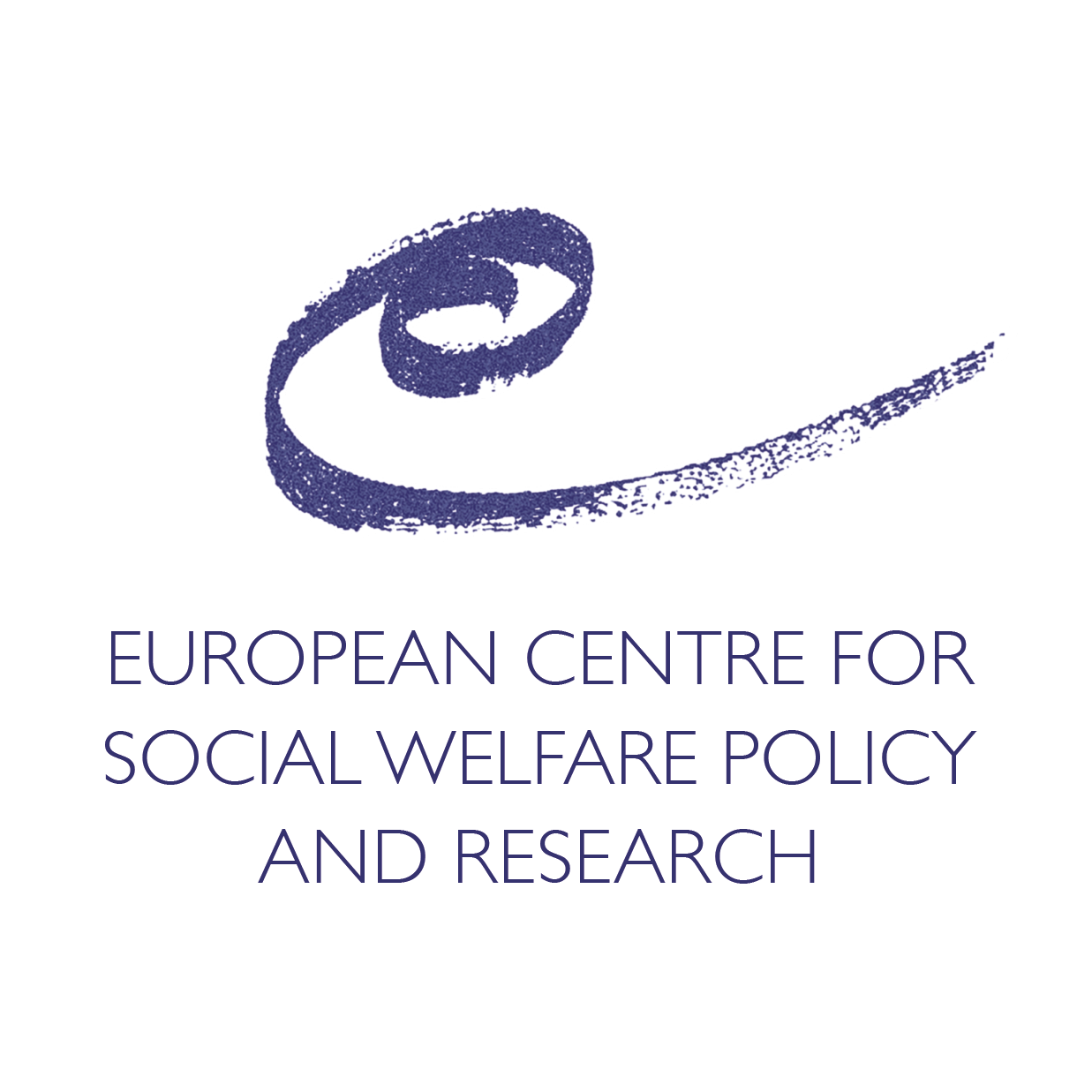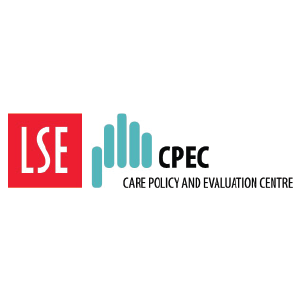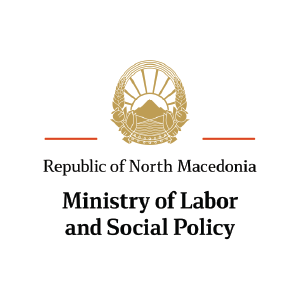The InCARE project will contribute to the design of a coherent and coordinated approach to the development of national long-term care policy and care services at local and regional level, by establishing socially innovative and participatory decision-making processes.
We work with care users, care provider organizations and policy-makers in Spain, Austria and North Macedonia to design, implement and scale-up innovative care services, with the ultimate goal of improving the well-being of older people and their families and increase their access to adequate and affordable care.
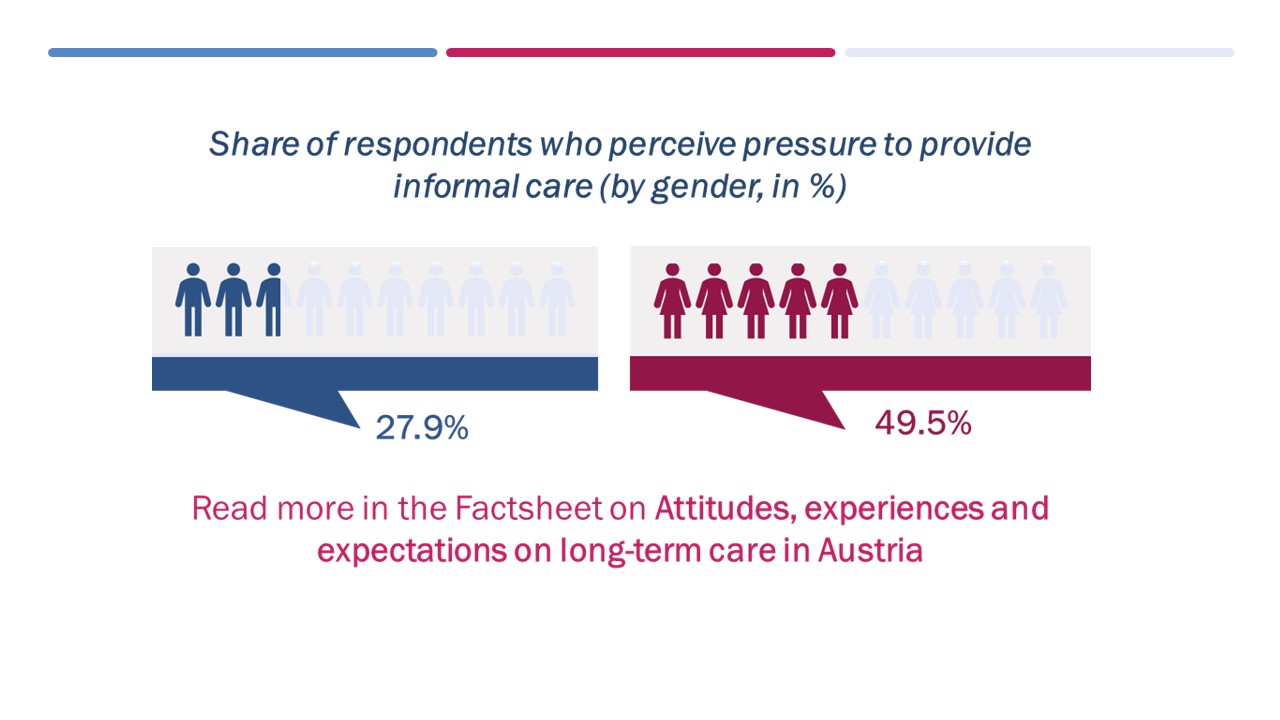
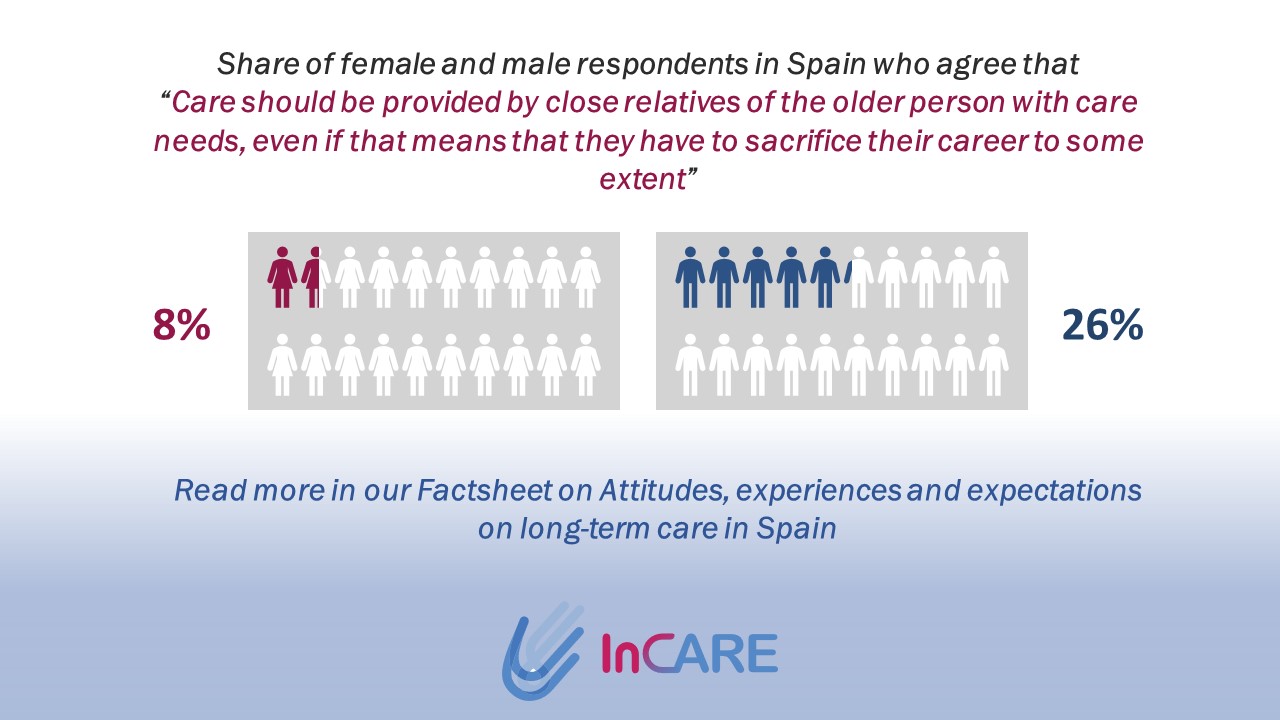
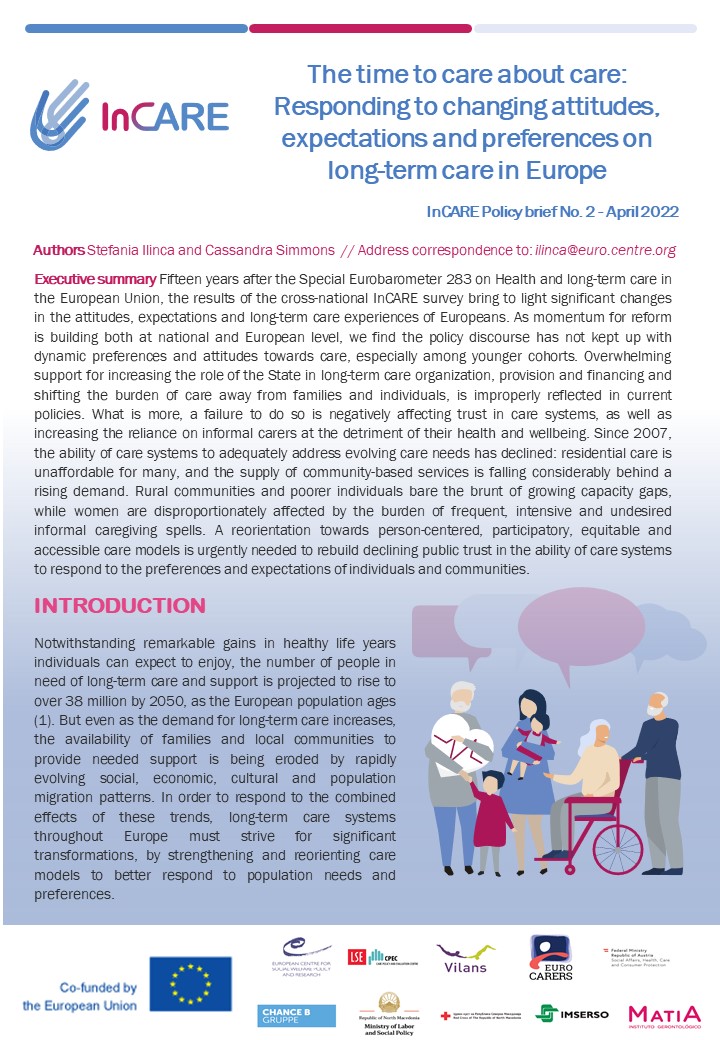
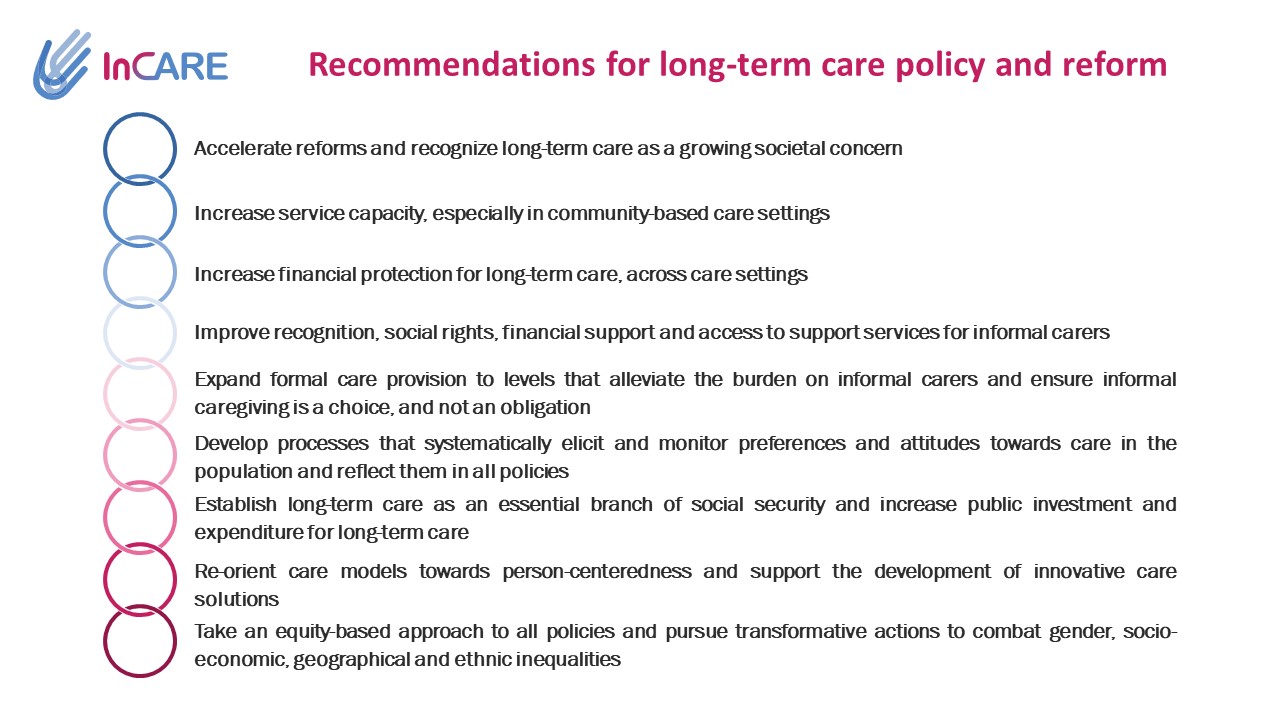
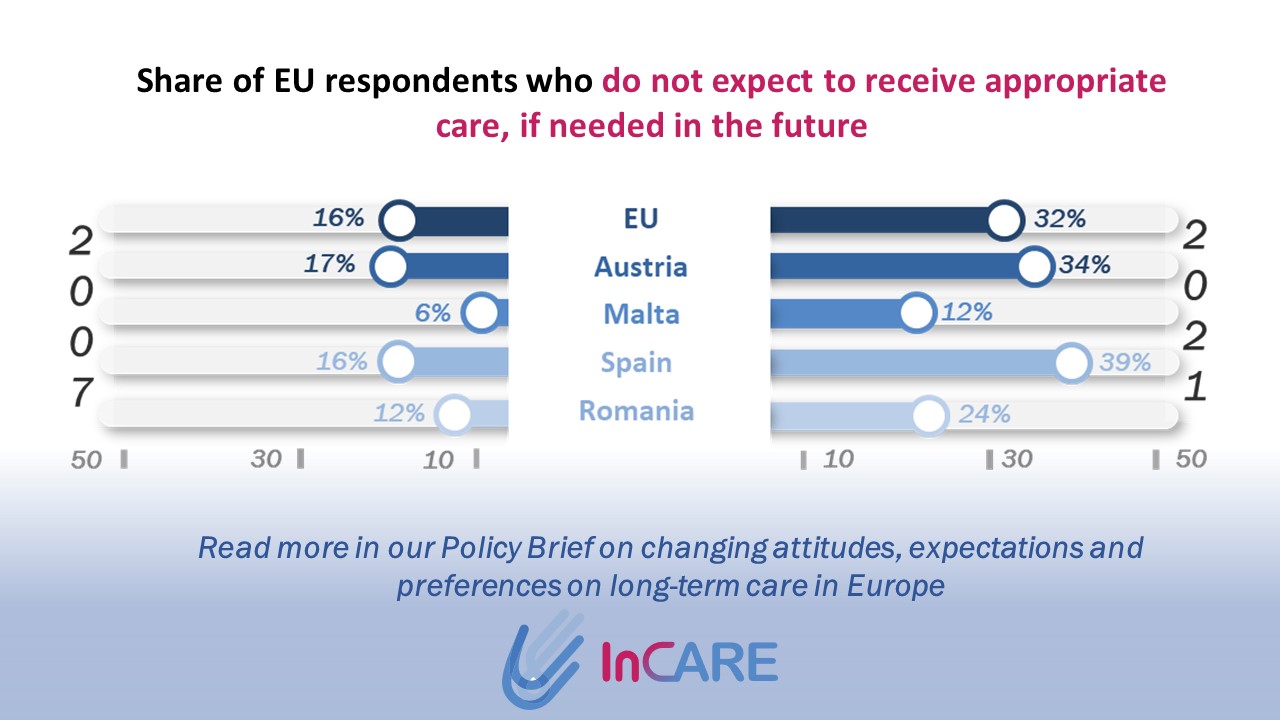
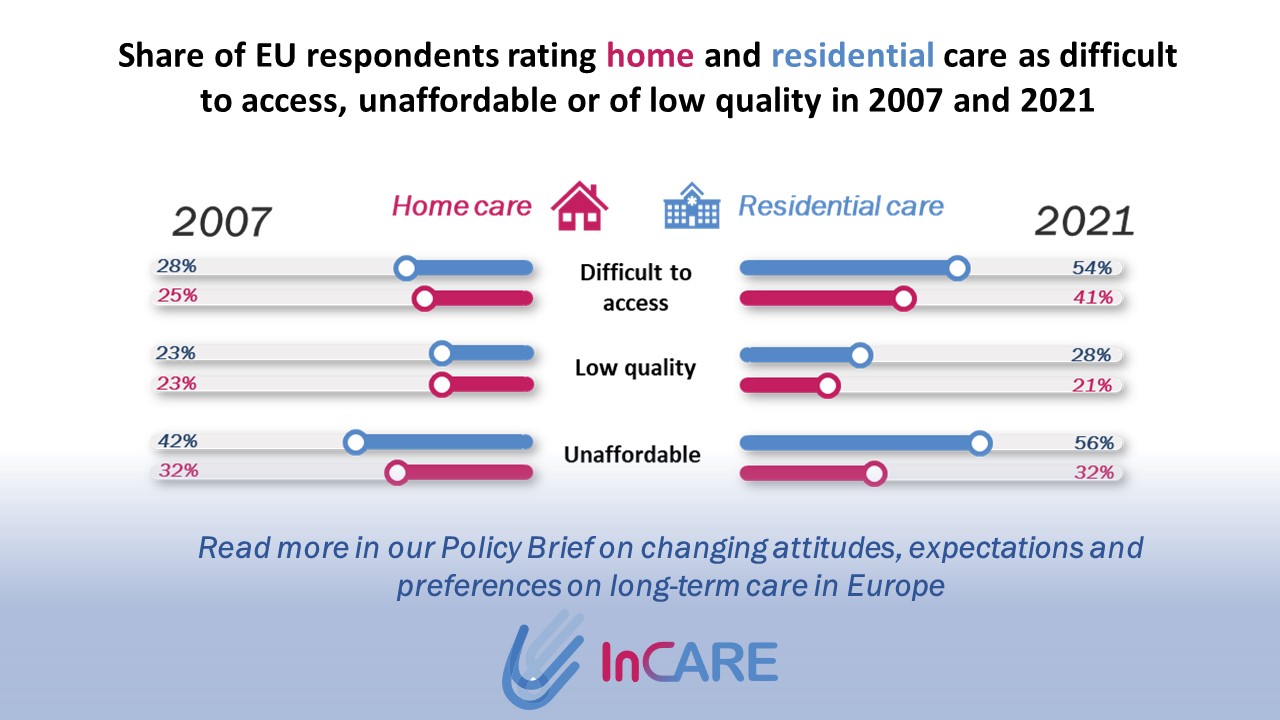
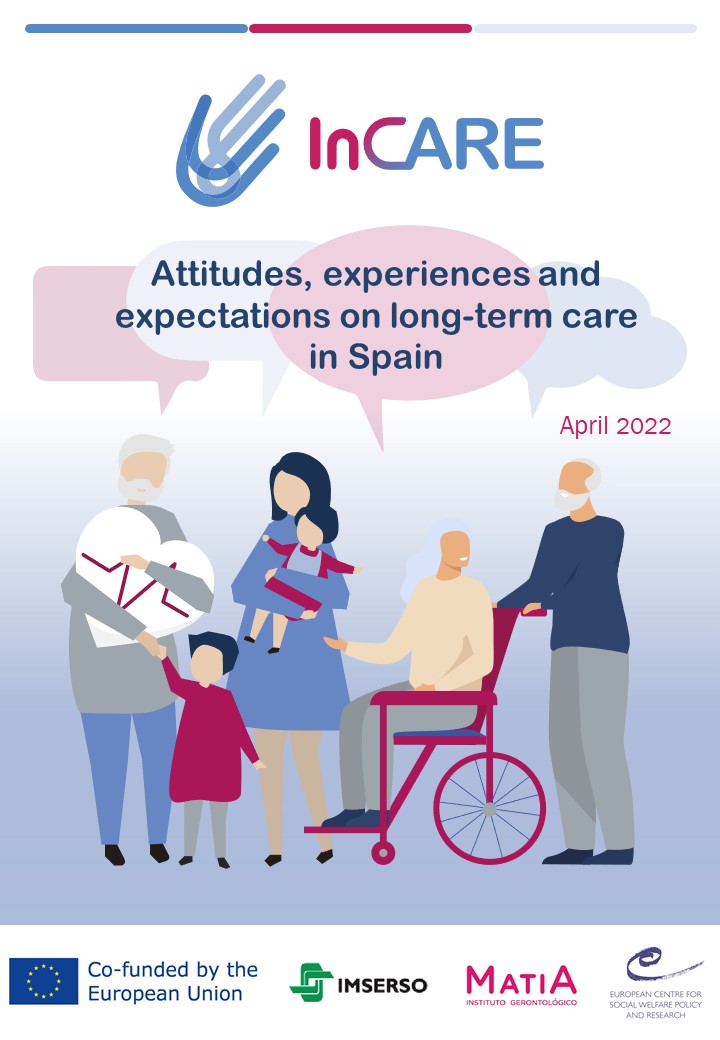
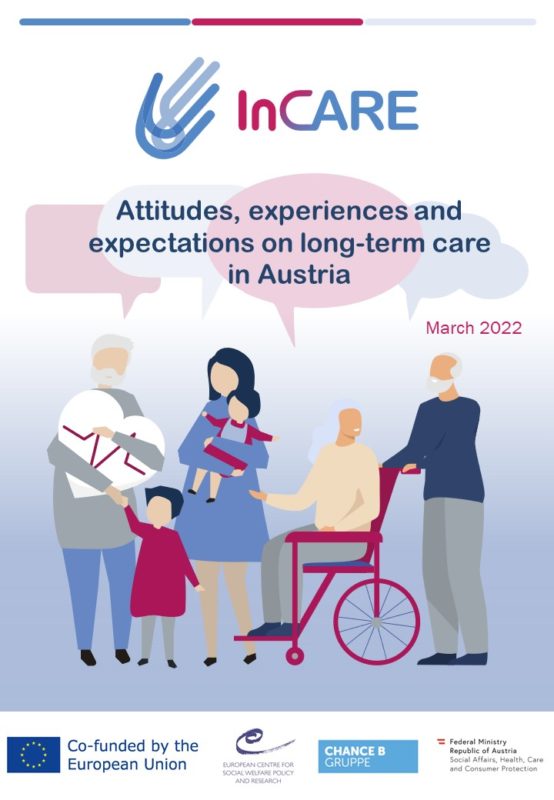
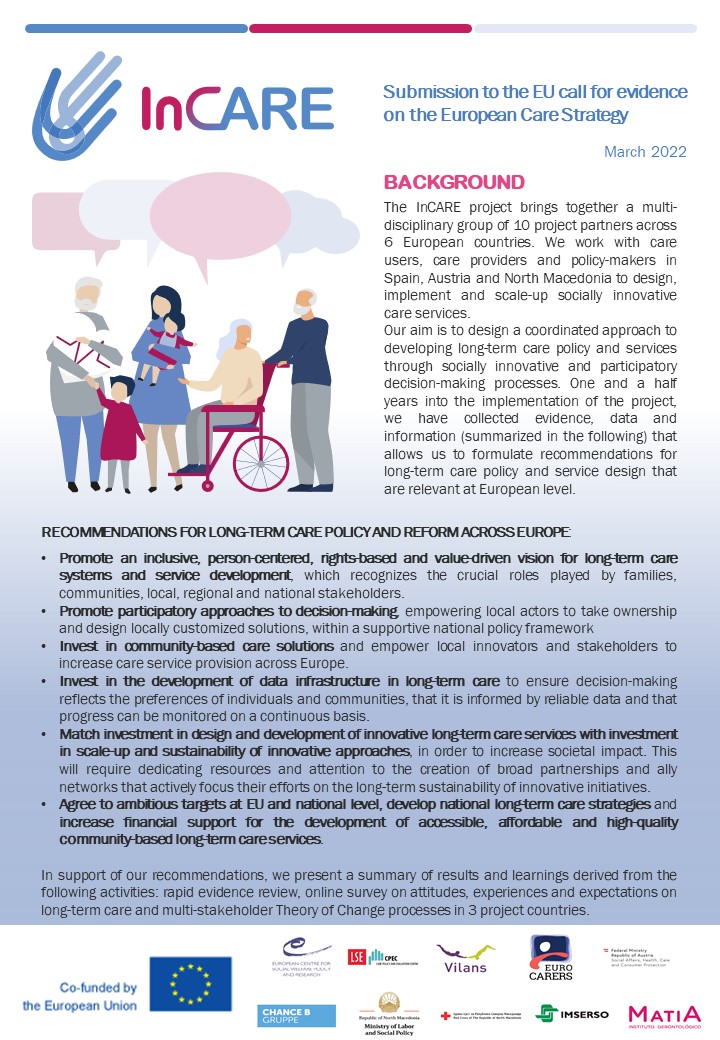









[…] When Covid came along it destroyed very important connections that enable older people in nursing homes to keep going & stay connected, to keep hope alive – the deterioration in my Mother in just 18 months was, & still is, devastating & resulted in her recent death. All those months we were unable to be by her side & keep her going, instead she wasted away as she was unable to comprehend what was going on with Covid, yet she was aware enough to know we were no longer with her. Looking through a window trying to communicate love & care to someone with dementia & who is very confused about why you wouldn’t come inside was one of the cruelest experiences. It was terrible to witness just how much our older people are let down by lack of creative, adequate, & in my opinion humane, care options because even in times of desperation when I considered taking my Mother out of the nursing home to live with me the pain of knowing that was not possible was very heavy as I knew the reality of what it had been like 4 years previously trying to care for her – lack of adequate home help, lack of adequate services – & now along now with significantly increased care needs it would have been a recipe for crisis. I became very unwell physically when I’d been involved in her care prior to her going to live in the nursing home.”
Woman, 46
Ireland
[translated] Additional taxation for end-of-life care is not equitable, considering that people already pay for health insurance. It would be necessary to eliminate corruption in the national health system, increase the quality of services and put a stop to the capture of the national health system by private entities who misappropriate funds that should be invested in our health, turning them into personal profit.
Woman, 37
Romania
[Translated] None of the services I have used have the means to help dependent people with multiple sclerosis. It’s a horror. I have to do everything on my own because the home carers for example can’t come if I’m in hospital or on rehabilitation…the domestic helpers are no longer available, I am not entitled to a transport service … I never qualify. I am revolted. I live alone without family and it’s really hard. I’ve been able to get help at times but it doesn’t last because the budgets are so small. Even people with severe physical disabilities don’t have adequate help. The Aviq [Agence pour une Vie de Qualité] has not been functioning for years… the situation is very serious. And it has become even worse with Covid.
Woman, 40
Belgium
[Translated] I have long cared for my sister and my mother, and now my husband who has cancer and is bedridden! I wish someone [could support me] for a few hours or once a few days so that I could go away once with my daughter and granddaughter or make a trip!
Woman, 67
Austria
[Translated] Support and training for family caregivers is needed in many ways.
Woman, 66
Austria
Start to talk openly [about] discrimination of elderly in Sweden which has been going on AT least 20 years by now [emphasis in original].
Woman, 52
Sweden
[translated] I am of the opinion that a pensioner has paid a rather large sum to the State month after month all his life. In old age, when that person would need long term care the state should participate in the necessary costs of the care and not leave the family to do it alone.
Woman, 40
Romania
[Translated – excerpt] Long-term care is an obligation of society. The administration has to participate and set criteria for equality, but it has to get involved in management, if it wants to do so under the same conditions as everyone else. Give a choice to the citizen who chooses what he/she wants, not what the administration thinks (free choice). Care should be directed by the people, not only centred on them. Empowerment of the citizen. Promote professional training and above all competences and skills. Increase staff ratios and salaries, and above all work/family/leisure balance. There is a lot of work to be done.
Man, 55
Spain
[translated] Sacrificing one life for another seems unacceptable to me. Everyone should be able to benefit from quality, professional services.
Woman, 38
Romania
As a person caring for my spouse I receive a payment from my social protection department to cover my role. This payment amounts to less than 1x€ per hour as I’m needed to be there 24 hrs per day to assist 365 days per year. I think I should receive a better benefit to do this task.
Man, 63
Ireland

